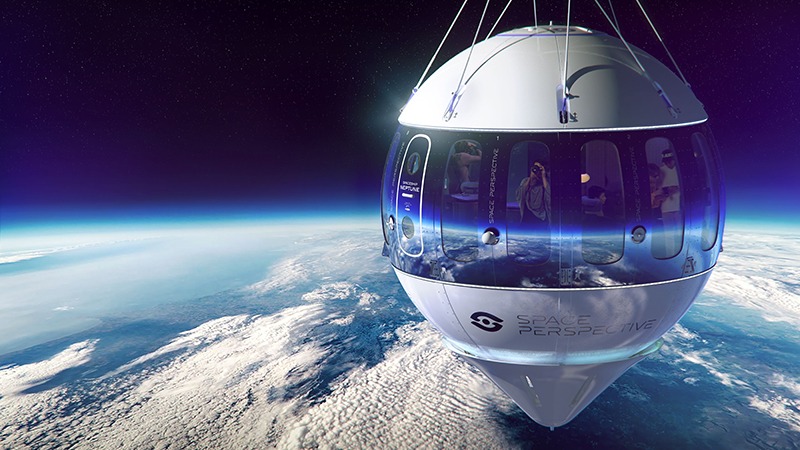
The future of travel and tourism is expected to reach new heights as the space tourism industry expands.
According to GlobalData, the space economy market is estimated to soar from USD$450 billion in 2022 to $1 trillion in 2030.
“Going to the edge of space will soon become an achievable aspiration and likely to be popular with tourists who are ever seeking new experiences. While we aren’t yet at the point where we can build hotels in space, investment in things like carbon nanotubes (CNTs) and launch vehicles will be important stepping stones,” said Patrick Mridha, Thematic Analyst at GlobalData.
Mridha emphasized the significance of investment in technologies such as carbon nanotubes (CNTs) and launch vehicles as crucial stepping stones towards making space tourism a reality.
As space travel media coverage tantalizes our inner astronaut, companies like SpaceX, Virgin Galactic, Blue Origin, and Boeing are working on offering galactic flights to high-paying customers. SpaceX plans to send tourists around the moon by 2025 and aims for manned missions to Mars.
However, challenges remain, particularly in the realm of sustainability. Monia Borawi, a Travel and tourism Analyst at GlobalData, stressed the importance of addressing sustainability issues in space travel.
Borawi noted that aspiring space tourism providers need to prioritize environmental matters, as evidenced by GlobalData's Q2 2023 survey findings, which showed that 62% of respondents expressed greater loyalty to brands that support environmental causes.

As space tourism becomes a tangible prospect, the travel and tourism industry is on the cusp of a transformative era.
The Wire recently revealed details about the world's first commercial space station, which looks like a luxury hotel inside. Curated by a former Apple designer, the "Vast Haven-1" features wood panelling, a viewing window, and duvets, reimagining space travel for style and comfort.
Haven-1, the world’s first commercial space station, is expected to be placed in low-Earth orbit by the SpaceX Falcon rocket as early as 2025.
Its first paying customers will board in 2026.
But, is the next space odyssey only attainable for the rich and famous? And can we assume it will be all-inclusive?
“Our long-term goal is for anybody to experience space,” Hillary Coe, Vast’s chief design and marketing officer, told The Wire.
— VΛST (@vast) October 10, 2024
Coe suggests pax should anticipate a "Home From Home" experience.
“Of course, in the beginning, you will need to pay to come up and have that experience and there will be a price tag that perhaps most of us won’t be able to afford on day one, but, over time, as it gets less expensive . . . then access will get wider and wider.”
Experts predict affordable commercial space travel could become a reality within 10-20 years. However, tour operators are already promoting a much shorter wait. RedTag.ca's website features a trip by Space Perspective, described as "the world's first carbon-neutral spaceflight experience company."
And yes, it's all-inclusive, including Wi-Fi, meals, drinks, and a spa. The entire trip onboard Spaceship Neptune will last six hours, expected to begin commercial flights in 2028. Redtag.ca packages, including an overnight stay in Orlando, start at US$126,395.
"For those of us with a passion for travel, our bucket lists tend to overflow," said Nathalie Tanious, president & CEO of H.I.S. Canada Travel Inc., the parent company of redtag.ca.
"While a journey like this may not be an immediate plan, it embodies the essence of a 'one day' dream, fueling our imagination with visions of exploring every corner of this wondrous planet, and beyond."





